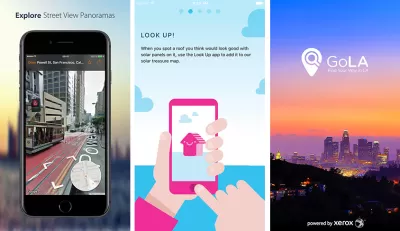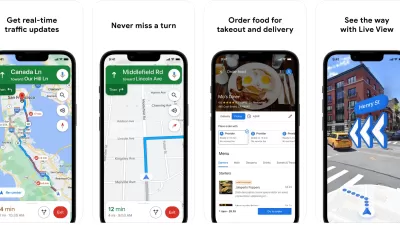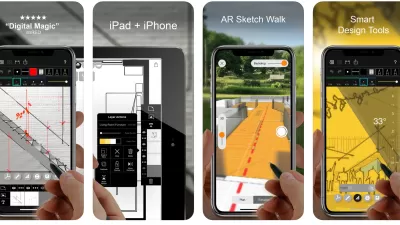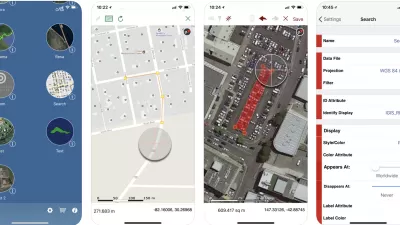Planetizen needs your help updating the definitive list of mobile apps for professional, student, academic, or citizen planners.

In 2023, with the emergence of artificial intelligence (AI) for the masses among the trends to watch in the planning field, the world of mobile apps seems poised on the brink of a generational shift. Every year, Planetizen uses a survey to crowdsource insights into the use of apps and mobile phones in planning practices of all varieties—from the private sector to the public sector, academia, and advocacy. In doing so, Planetizen hopes to share information about the best mobile apps for the various applications of planning. We also hope to identify remaining gaps in mobile technology specific to the purposes of planners.
Of course, it’s hardly been a generation since mobile apps became a day-to-day, hour-to-hour, presence in the professional and private lives of planners. This light-speed rate of change is even more reason to continue the tradition of crowdsourcing this list of Top Apps for planners. No one person could possibly keep up with all the apps available on the market by themselves, so the utility of this list will be greatly increased by your participation. Maybe we’ll even see AI-driven apps start to show up on the list.
Please take a few minutes in the next few days to take the survey and share little information on how you use apps as a planner, and, most importantly to the wider world of planning, which apps you have come to rely in the various tasks, responsibilities, and roles of your professional or academic life. Those who have been taking this survey for years will see a lot of the same questions, but with a few small revisions. There is a new question that attempts to capture apps that have fallen into obsolescence, for example. But for the most part, this is the same survey we have been using since 2012.
The survey will still only take a couple minutes to complete. Please feel free to share the survey with colleagues to help Planetizen gather as much feedback as possible. Every year after we post this list, we get an email from someone who says we missed their app. Please help spare us those emails this time around. But mostly, we want to hear from as many planners and related professionals as possible, so we can provide a complete list of the most useful, fun, and engaging apps available on the planning market.
It might be useful to peruse the entire list of Top Apps posts, including the most recent posts, from 2022 and 2019. If you are still using the apps reported by these previous posts, we still want to hear about it. With that, we’ll provide the link to take the survey on SurveyMonkey one last time.

Study: Maui’s Plan to Convert Vacation Rentals to Long-Term Housing Could Cause Nearly $1 Billion Economic Loss
The plan would reduce visitor accommodation by 25,% resulting in 1,900 jobs lost.

North Texas Transit Leaders Tout Benefits of TOD for Growing Region
At a summit focused on transit-oriented development, policymakers discussed how North Texas’ expanded light rail system can serve as a tool for economic growth.

Why Should We Subsidize Public Transportation?
Many public transit agencies face financial stress due to rising costs, declining fare revenue, and declining subsidies. Transit advocates must provide a strong business case for increasing public transit funding.

How Community Science Connects People, Parks, and Biodiversity
Community science engages people of all backgrounds in documenting local biodiversity, strengthening connections to nature, and contributing to global efforts like the City Nature Challenge to build a more inclusive and resilient future.

Alabama: Trump Terminates Settlements for Black Communities Harmed By Raw Sewage
Trump deemed the landmark civil rights agreement “illegal DEI and environmental justice policy.”

Dear Tesla Driver: “It’s not You, It’s Him.”
Amidst a booming bumper sticker industry, one writer offers solace to those asking, “Does this car make me look fascist?”
Urban Design for Planners 1: Software Tools
This six-course series explores essential urban design concepts using open source software and equips planners with the tools they need to participate fully in the urban design process.
Planning for Universal Design
Learn the tools for implementing Universal Design in planning regulations.
City of Santa Clarita
Ascent Environmental
Institute for Housing and Urban Development Studies (IHS)
City of Grandview
Harvard GSD Executive Education
Toledo-Lucas County Plan Commissions
Salt Lake City
NYU Wagner Graduate School of Public Service





























